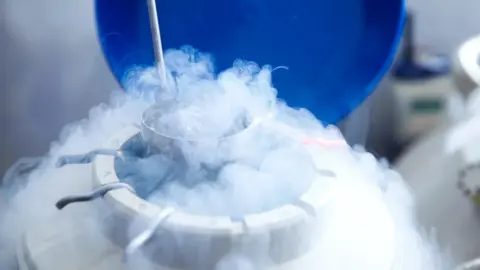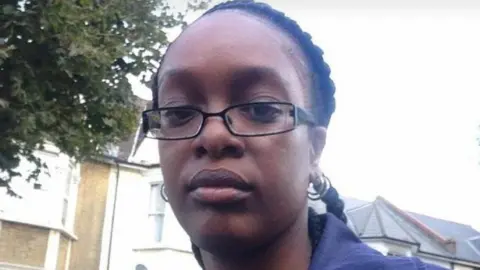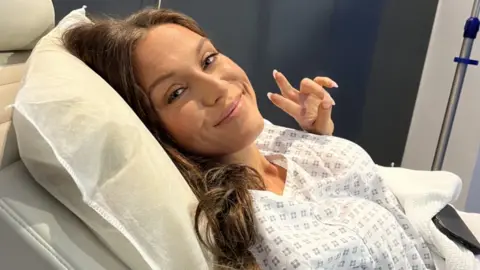Egg freezing rises as more women look to preserve fertility
 Getty Images
Getty ImagesRecord numbers of women are freezing their eggs in the hope of having a family later in life, according to a new report.
More than 4,000 patients froze their eggs in 2021, compared to 2,500 in 2019, the Human Fertilisation and Embryology Authority (HFEA) said.
The "dramatic rise" could be linked to the pandemic, a charity said.
But doctors warned there needed to be more awareness of the pros and cons.
Sarah Norcross, director of the Progress Educational Trust fertility charity, said some women had considered their fertility during the lockdowns.
"Restrictions on socialising may have prompted some women to think more about their fertile window, and decide to try to increase their reproductive choices," she said.
Despite the number of egg collections increasing, less women decided to donate their eggs for another woman to use, according to the report.
There were nearly 1,500 new egg donors in 2019 but this dropped to just over 1,400 in 2021.
 Helen Henry
Helen HenryHelen Henry, from Thurrock in Essex, donated some of her eggs when she had hers frozen 10 years ago at the age of 34.
She was in a long-term relationship with a partner at the time, who did not want children.
"I remember having counselling explaining the reason why I wanted to freeze my eggs and being given the opportunity to donate as well. I took that option as I wasn't just doing it for myself.
"After donating I started to feel quite guilty. I wasn't sure that I had done the right thing. What if the mother of the child isn't a good one? What if the child ends up in foster care? What if it's neglected?
"Fast forward a few years, I found out that a baby girl was born in December 2011 from my donation. Finding out a child was born made those guilty feelings go away," she said.
Ms Henry went on to have her own children with a new partner, and never used her frozen eggs, which have now been disposed of.
"I fell pregnant naturally and quite quickly and had my first daughter at age 39 and I am currently on maternity leave again having had my son last December, aged 44," she said.
"This will be an ongoing conversation with my two children that they have a genetic sister out there in the world. I pray that I will see this child one day. It is one of my last wishes."
 Vicky Pattison
Vicky PattisonTV presenter and podcaster Vicky Pattison, who also lives in Essex, has just had some of her eggs frozen, after deciding she was not yet ready for children.
Three of her eggs were turned into embryos with her partner's sperm, which she was told have a 20% chance of resulting in a baby. She has also kept three as unfertilised eggs, which have a 10% chance.
She shared her feelings throughout the treatment, saying there was "not enough genuine, honest information out there".
Success is strongly dependent on the age of the woman at the time of freezing her eggs, the HFEA said, with higher success rates in those aged under 35.
Consultant obstetrician and gynaecologist Bassel Wattar said more work was needed to inform patients and support them through their fertility journey.
"Unfortunately, there is limited public awareness on the pros and cons of this treatment and how it could be best planned to optimise chances of starting a family in the future," he said.

Are you freezing your eggs? Do you want to have children later in life? You can share your experiences by emailing [email protected].
Please include a contact number if you are willing to speak to a BBC journalist. You can also get in touch in the following ways:
- WhatsApp: +44 7756 165803
- Tweet: @BBC_HaveYourSay
- Upload pictures or video
- Please read our terms & conditions and privacy policy
If you are reading this page and can't see the form you will need to visit the mobile version of the BBC website to submit your question or comment or you can email us at [email protected]. Please include your name, age and location with any submission.

Find BBC News: East of England on Facebook, Instagram and Twitter. Got a story? Email [email protected] or WhatsApp us on 0800 169 1830
